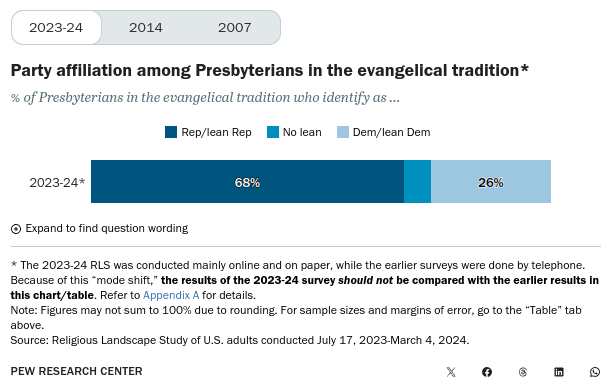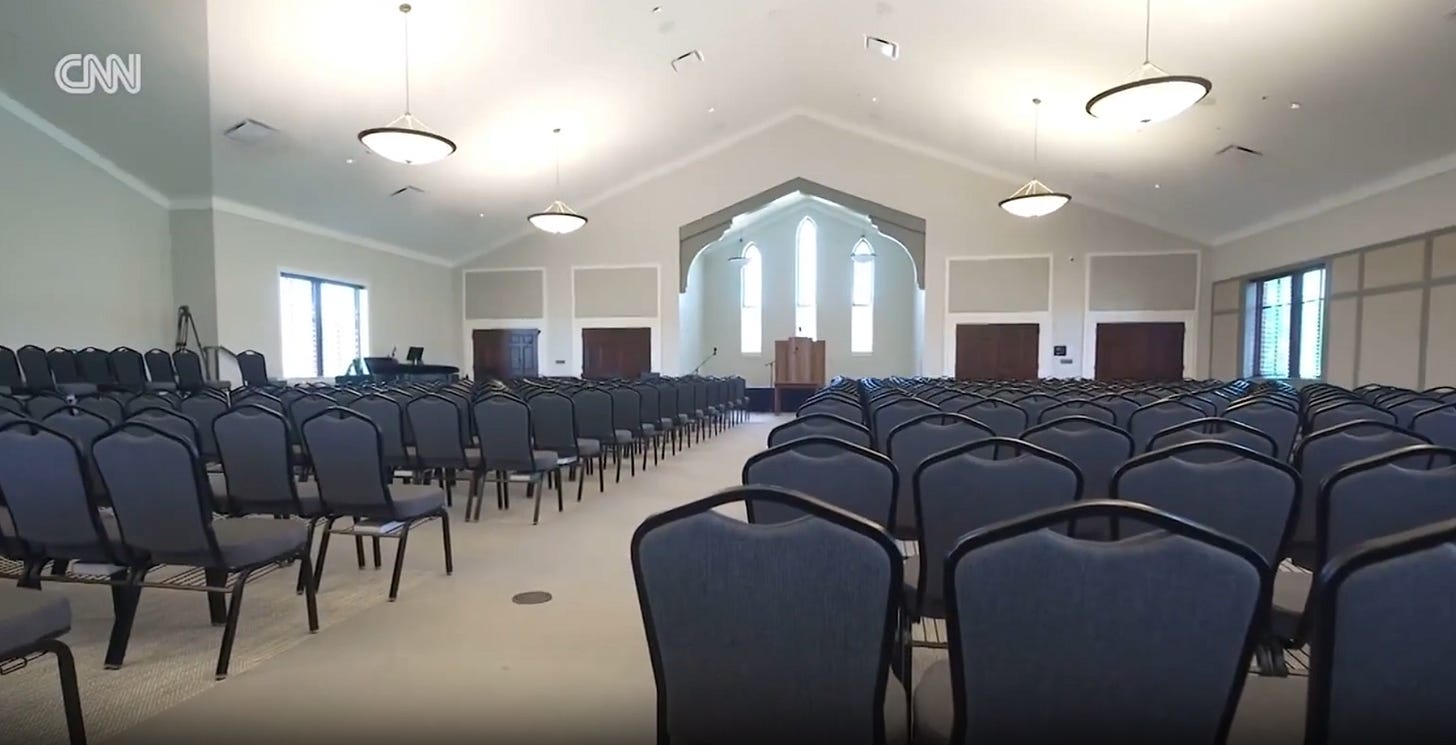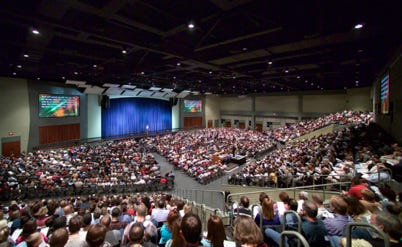The Facade of Influence
Yesterday, CNN aired a segment on Doug Wilson and Christ Church (aka The Kirk). There’s nothing remarkable about the interview, and it follows the usual pattern of mainstream coverage of extremists like Wilson:
The conversation centers almost entirely around politics (and Wilson and co. are happy to oblige).
The journalist treats standard conservative ecclesiology and Wilson’s views that are at odds with most conservative Christians as equally regressive.
The journalist brings in figures from the opposite, extreme end of the church and treats their assessments as normative.
The journalist doesn’t interview the many middle-of-the-bell-curve conservative Christians who openly reject Wilson, leaving her mostly uninformed audience to assume that Wilson represents the common worldview of conservative evangelicals.
This will surely spark another forty-eight hour debate cycle, where people will yet again litigate all things Moscow, missing the obvious truth staring them in the face. Take a look at these two frames, and see if you can figure it out.
Wilson’s brand new church, the centerpiece of his empire, is smaller than the average Bible-Belt church. It’s around the size of an established orthodox Presbyterian church, and much smaller than the average Southern Baptist or non-denominational church. Doug Wilson is considered the figurehead of the “theobro” movement; he has been trying to get people to move to Moscow, Idaho, for decades, selling them on a utopian vision, and yet his brand new church is about the same size as the Church of God in Christ assembly in my small suburb of Greenville, South Carolina, that has no internet presence beyond a web page. To put this all into perspective, here’s the interior of the most popular church within a couple miles of my house. It’s one of dozens of similar, or larger, size in my city.
To compound this, consider that conservative Presbyterians, the tradition Wilson claims to be a part of, make up roughly 1% of the United States population, and roughly 26% of them lean Democrat. On top of this, the majority of conservative, orthodox Presbyterians, including most pastors, elders and theologians in the Presbyterian Church in America and the Orthodox Presbyterian Church, consider Wilson to be a schismatic or outright heretic.

Treating the theobro movement as anything more than an ideological threat to the minds of malleable young men within the church is to play into the online theatrics and chest-puffing of Wilson and his copycats. Pete Hegseth got his position in the Trump administration in the green room of Fox News, not in the fellowship hall of a church in Wilson’s boutique denomination that he created to cater to his heterodox views. The new White House “faith office” is run by a female pastor and self-proclaimed prophet, two things at direct opposition to the theobro movement. The politics of Wilson and friends are useful as a “Christian” niche to a mostly secular “National Conservative” conference and political-appointment grift that will never adopt anything resembling Wilson’s theonomic vision, and he is more than happy to play his part, collect a speaker’s fee, and get more publicity for his “Christian” business endeavors.
I recently came across a list of Christian Nationalist social media influencers who follow a famous Holocaust denier. On the list was a pastor who had a fair amount of interaction and influence with some of the better-known theobros I’ve been tracking for years, whom I’d never done research on. When I looked up his church, I found an old, dingy, roughly eight hundred square foot stucco building, in the middle of an old neighborhood in the Great Plains. It couldn’t house more than eighty people, if you packed them in like sardines. Yet, this person has thousands of followers on social media and is considered a medium-level personality in the “Reformed” Christian Nationalist movement, which he’s playing for a profit.
Doug Wilson is playing the same, for-profit game, just at a moderately higher level. He is so disliked, even in his home town, that his associates cannot win local elections. His brand of “Christianity” has no chance of becoming the predominant religion in America, now or ever. His (and his imitators’) online theatrics merely serve as a useful foil for people at the opposite end of the political horseshoe, who vastly outnumber his tribe, and he only has minute influence in the Reformed church because of how much undue weight political polemics have been given in the pulpit.





Thank you for sharing this brother. Even in Iowa, we see this strange movement peeking its head up.
One thing I think you’re missing is the size of the classical homeschooling movement and the influence Canon Press has there. It’s up here and growing in Canada too- mostly with people who see “Christian worldview” and love it for that, and have no idea who Wilson actually is.